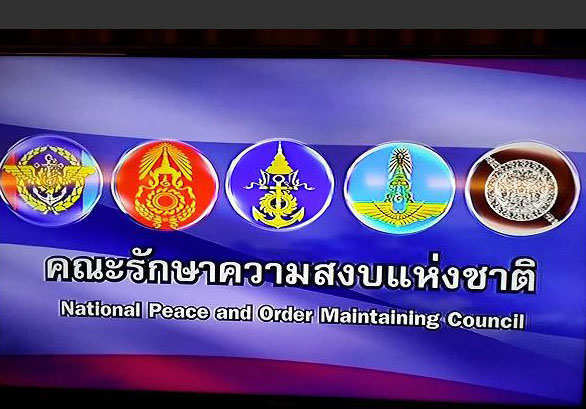The new interim Constitution unveiled on Tuesday by the National Council for Peace and Order (NCPO) includes several provisions that place the NCPO and its agents above the rule of law, the ICJ said today.
It ensures they are immune from legal scrutiny or accountability, in violation of Thailand’s obligations under international law, the ICJ points out.
“Three fundamental pillars of the rule of law and human rights law are equality, accountability, and predictability, and the interim Constitution seems to ignore all three pillars,” said Wilder Tayler, Secretary General of the ICJ. “The NCPO should immediately repeal the problematic provisions or clarify how its actions will be subject to proper judicial scrutiny while the country awaits the development of a proper Constitution.”
The NCPO assumed authority after a military coup d’etat on 22 May 2014 and immediately suspended the 2007 Thai Constitution (except for Chapter 2, regarding the status of the King). The 2007 Constitution itself was drafted after a military coup in 2006.
The ICJ focused on three provisions of the interim Constitution that appear to remove any legal restrictions on the NCPO and provide it with absolute immunity, in violation of international law:
- Article 44 of the interim Constitution gives the Head of the NCPO absolute power to give any order deemed necessary for “…the benefit of reform in any field and to strengthen public unity and harmony, or for the prevention, disruption or suppression of any act which undermines public peace and order or national security, the Monarchy, national economics or administration of State affairs..,” and provides that any such order “…is deemed to be legal, constitutional and conclusive…”
- Article 47 provides that all NCPO announcements and orders given since the coup and up until the National Council of Ministers takes office “…regardless of their legislative, executive or judicial force..,” are also “… deemed to be legal, constitutional and conclusive.”
- Article 48 states that all acts of the NCPO in relation to the coup, as well as any acts of persons connected to the NCPO’s acts, if the acts are illegal, “…all related persons shall be exempted from being offenders and shall be exempted from all accountabilities.”
“These articles place the NCPO and its agents beyond the reach of the law, even when their actions result in human rights violations,” Tayler added. “We remind the NCPO that their actions are still subject to international law, notwithstanding the status of the country’s constitution.”
The articles of the interim Constitution that provide immunity for human rights violations are inconsistent with Thailand’s international human rights obligations including under the International Covenant on Civil and Political Rights (ICCPR), to which Thailand is a State Party.
Article 2 of the ICCPR guarantees that any person whose rights are violated shall have an effective remedy, notwithstanding that the violation has been committed by persons acting in an official capacity and that such a remedy shall be determined by competent judicial, administrative or legislative authorities, or by any other competent authority provided for by the legal system of the State. The authorities are required to develop the possibilities of judicial remedy.
“The judiciary is central to the protection of human rights and freedoms by providing an essential check and balance on the other branches of government. By placing executive power outside the reach of the courts, an environment which increases the risk of human rights violations is created while at the same time denying victims their right to an effective remedy,” Tayler said.
Note: all citations of the interim Constitution are based on an unofficial translation.
Thailand-ICJ and Interim Constitution Articles 44 47 48-2014 (full text in pdf)
Thailand-ICJ and Interim Constitution-news-press release-2014-thai (full text in pdf)




